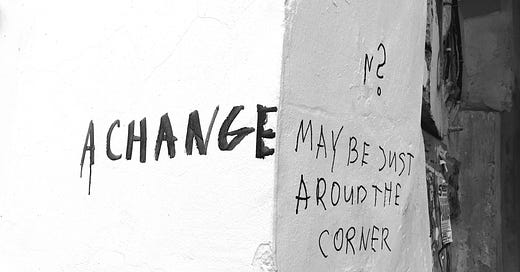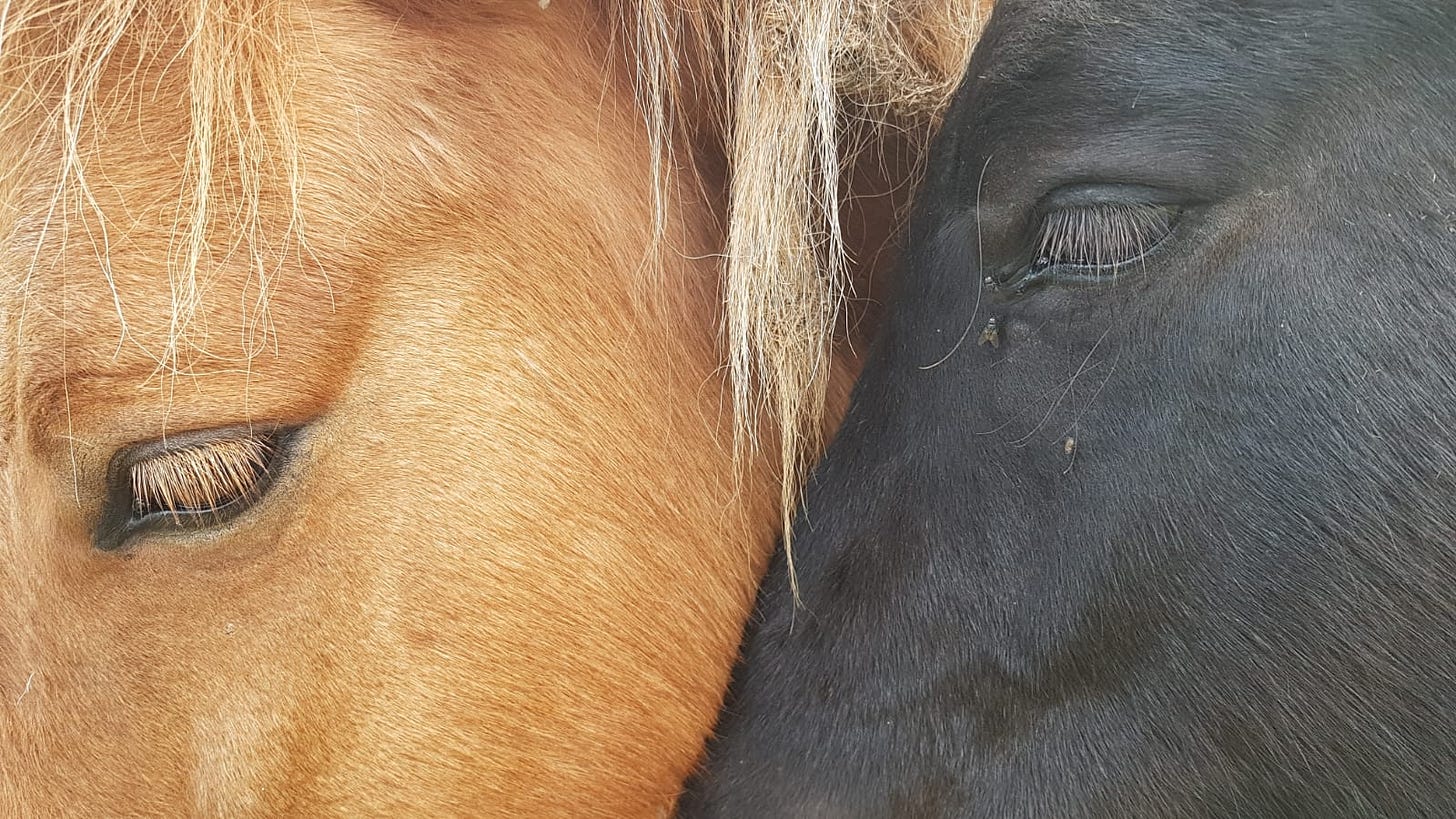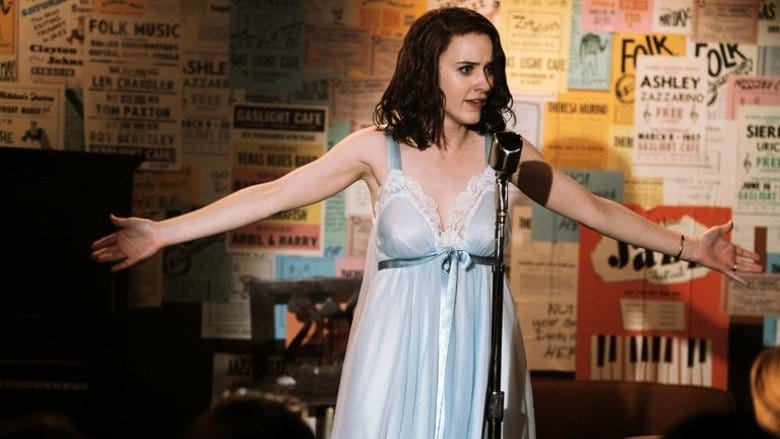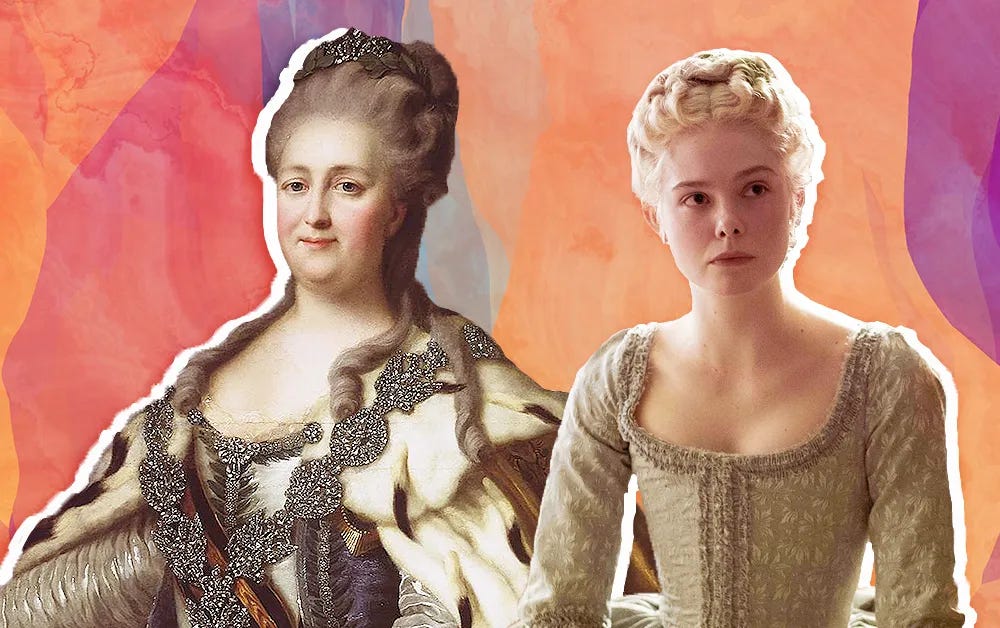I should start with this: Ever since I have made writing a priority, panic has subsided. Not people, not projects, not pulp, nothing comes before the words. The words I held back for decades. That were shelved in unlabelled boxes. Kept me up at night, trying to sneak out and run away from me.
“My Morning Musings Before Coffee (Walking the Dogs in My PJ’s)”
I wrote this and posted it in a note last week. Before I circle back to what is happening with me as a person in relation to my writing as a daily practice, I want to share this. I have been working on a personal essay to explore this further, but I believe these points are valid, on their own and as a foundation for future writing.
I am changing. I am doing so without seeking permission. Without doing the rounds and asking: Are you ok with this? Which means I will not apologise for it. Not even when it hurts you. Or if it makes you want to leave. You are free to go. At any point.
There is a beautiful love sonnet by Shakespeare where he says: love is not love if it alters when it alteration finds.
This does not just apply to romantic love. This applies to all love, between parents and children, between siblings, between friends. If you need me to stay the same, to be someone who fits the version of me you’re most comfortable with, then you don’t love me. You’ve been using me.
If you love me, you’ll walk alongside me as I evolve. If not, then our paths separate here. Because I won’t stop changing. And I wont do all the work to explain my changing to you. We do it together, based on mutuality, or we don’t.
NOTE POSTED THURSDAY MAY 15TH
It’s a clarifying filter, when you step back, to see who shows up (consistently) and who doesn’t. I let things slide before. Not now. Not again. This is my time to receive, not to be asked to do the emotional work for everyone involved. You can walk alongside me or not, but I’m not going to handhold you all the way.
(Edit: I forgot to say that I am over those with the emotional bandwidth of a shrimp and the attention span of a gold fish. Sometimes it takes an unexpected honest, vulnerable conversation with someone to make you realise others just don’t measure up…)
1. “My compassion often stretches further than my boundaries can carry.”
I’m not lacking boundaries. Thank fuck. I’ve just had compassion that outruns its leash. No more emotional elasticity for people who won’t meet me halfway.
2. “One of the most cynical things is when you are sick and slow and your life has become small and quiet….and people around you don’t have time for you because they are overrun by their overly stuffed lives.”
My life narrows. Through illness, through grief. I would love others to lean in gently. But many don’t. They drown in their own noise, or they don’t notice I’ve quieted. It’s not even rejection. This just shows unawareness, inattention. And that grazes differently. Especially, when I’ve made space for their chaos before.
3. “Not having time for things that matter doesn’t make you look busy and important. It shows you are an idiot.”
Bit brutal, but honest. And not unkind. I’ve become impatient with performative busyness. (That happened twenty years ago already, and it was one of the reasons I left the country. Also why I’ll leave again as soon as health permits.) If you’re too “busy” to notice someone slipping away, you’re not busy. You’re spiritually bankrupt.
(There is a great exercise to gain clarity on this: write a list with the ten things that matter to you most in order of priority. Then keep track of what you spend your time on. Write a list of the ten things you did this last month, in order of most time spent on it. Now, put those two lists side by side and sport the difference…)
4. “I will rely on myself only for the time being. Lean back and see who is solid.”
That’s sanity. Not bitterness. Just a healthy retreat. I’m not closing my heart off. I’m re-centering it. I’m at the heart of my life. I am my life. And a space in: that has to be earned.
I’ve learned that being whole and fully present, alone with myself, is not loneliness. It’s a conscious recalibration of who gets my time, my truth, and my home-cooked dinners.
(This is not me throwing a tantrum, or a pity party that you weren’t invited to. Believe me, if I were in pity party mode, you wouldn’t be receiving this newsletter. I would be under the duvet with a bag of M&Ms with peanuts, binge watching tear jerkers and rom-coms.)
Mrs Maisel (photo Harper’s Bazaar)
WHEN IT IS ALL LAID BARE
Last night in bed, waiting for a Whatsapp message to tell me who won the EuroVision Song Contest, I watched Mrs Maisel. It is about a fifties housewife in New York, Midge Maisel, who starts to pursue a career in standup comedy. In this episode (S2 E2) Midge’s manager Susie wants to make her famous. Midge wants to tell her family first.
Her estranged husband already knows. It’s the reason they didn’t reconcile. Joel can’t handle having his private life thrown at strangers from a stage. Midge has no other option. Stand up is talking about your own life. And Midge is good at it. Really good. And Joel doesn’t want to stand in her way.
Recently there was the final of a Dutch singing competition. In one of the rounds the participants had to bring an ode to someone special. One of the women sang for her grandparents who raised her from the age of two when her mother left life.
(I am still looking for the kindest and most respectful way to rename Suicide. This word reminds me too much of a crime. The injury crime committed here is that a life falls through the cracks because suffering has become unbearable to the point it has to stop and it no longer matters how it stops as long as it does… side note)
One of the mentors, Thomas Acda, is one of my favourite Dutch artists. He told the young woman it’s key to find the edge of the emotions: Make everyone feel it without making anyone feel sorry for you. Make it personal without selling out the private.
The more I write the more the difference between personal and private blurs. I share a lot here. It may seem self indulgent exhibitionism but I would like to believe it serves a higher purpose. To lay human shit bare however uncomfortable. For either reader or writer.
I am not “gospelling” some personal truths for you to appropriate. I also can't escape my perspective. I write about myself, about the world, and how I perceive my place in it. It’s a filter I can’t lift. But I do it because I have a gazillion questions on what it means to be human. What life is all about. I need to question and dig into my motives and meaning. I have no other way.
I want my writing to move beyond catharsis or confession. I want to feel I am moving into communion: With the reader, with the world, with all the unspoken things I carried, and picked apart in my journals, my notes, my meditations, but never out loud. Let alone in a public space.
I do it, because when others did this, and I found their words in books, magazine articles, or even talkshow interviews, I felt less alienated. Closer to finding my sense of belonging.
We’re not here gossiping. There is no malice or sensationalism. I am not exploiting pain. I am mapping it out, hoping I will feel less lost. I am not blurring personal and private for shock or drama. This is my way of navigating the space where meaning gets made. And yes, like Acda said, it’s about finding the edge: Where it touches but doesn’t tip over, where emotion floats and doesn’t drown the audience (or readers).
Susie wants to see some return on investment. If Midge becomes famous there is more money. But it’s not Susie talking about her sex life on stage. I too can overthink the intimacy of what I share. My mother reads all of my work, so I relate to Midge's reluctance to tell everyone, with the risk that friends and family start showing up for her gigs.
This tension between art and exposure is very real, especially when my life is the material. What’s personal becomes professional (this still feels weird.. now I quit being a copywriter, this writing is my profession). Life is not content. It’s meaning making. And power lies in choosing how much of it to make public, and how to make it my own, even when everyone and my mother is watching.
There is a cost to share it all in public, whether it is through writing, music, or art. Any form of expression that implicates us, the most essential, vulnerable, intimate parts of us (and those around us) has a price. Even when we create from love or nuance or necessity, someone may feel exposed. Not just the creator.
Writing is a form of power. Power, no matter how gently wielded, can cause hurt, colateral “damage”. Like Joel, people may feel used, even if it is not about them. That, for me, is the hardest part: Even when I write about you, it is still not about you. It is about how I experience and perceive you.
As soon as I start to be considerate of other people's comfort, I distort. I curate and I don’t want a curated version of my own stories. That is not my purpose. I write now the way I do, because it’s about retrieving parts I left out before for the sake of others. I write to find my way “back” to my self. A Self in flux.
Every word becomes a breadcrumb leading me back to a self I did not acknowledge, for the comfort, convenience, or expectations of others. I write a lot about home and belonging. Now, my writing IS the way home.
Like Midge I didn’t think it through when I started writing here, on Substack. I knew it wasn’t going to be just cultural essays and commentary. But I wasn’t that “aware” either of the implications of being honest. This honest. I am now slowly realising that this isn’t just expression: it’s exposure. And exposure has consequences. It rearranges how people see me, what they expect from me, how you relate to my past. And still, I can’t let any of that hold me back, become an extra filter, a censor.
I didn’t write because I am unaware. I started writing because I was finally ready, even if the full “knowing” hadn’t caught up yet.
Now it has. And the only question is: do I keep going?
(You already know the answer.)
That brings me back to my exhaustion and my need for reciprocity. I can do this. I can write and lay it all bare for the world to see. But I can’t hold your hand anymore.
FOOLISHLY WANDERING
It is just a little one, but it matters. If you have been receiving, and reading, these newsletters for a while you’ll know that the idea of “home” has never been simple for me. I’ve been wandering for what seems like forever. Sometimes by choice, like London (to study) or initially Transylvania (for volunteer work at first, then for my personal sanctuary) too, often by necessity, when sublets fall through or neighbours turn out to be, well, lethal.
This piece is a continuation of that thread: the ache of exile, the pull of belonging, and the quiet hope that maybe, just maybe, I’ll still find my way home.
YOUNGER LOVE(R)
I have been circling around the revival of the cougar genre for a while now. Mostly, I was focusing on the cultural context, being a bit too academic about it. Then I realised, it is relevant to me because it is a matter of “been there, done that” for me.
Yes, my love life spans a broad age range, and I wrote about it HERE.
By the way, it may seem like a “novelty”, but oh no. We are preceded by the greats:
Catherine the Great (Russia) and Her Lovers
Catherine II (1729–1796), Empress of Russia, never remarried after the death of her husband, Peter III. However, she had a series of younger male lovers, many of whom were 10–30 years younger. The most famous was Grigory Potemkin, and later, Platon Zubov, who was 40 years her junior.
You can watch Fanning in Hulu’s The Great.
Wu Zetian (China) and Her Lovers
Wu Zetian (624–705), the only female emperor in Chinese history. After becoming empress regnant, she is said to have taken younger male lovers, including the brothers Zhang Yizhi and Zhang Changzong, who were decades younger.
There is a great expo about Wu at the Princessehof until May 25th (not long so hurry).
PS
I will leave you with another little note, a short poem I wrote yesterday, and my personal favourite from EuroVision. Italy’s Lucio Corsi.











